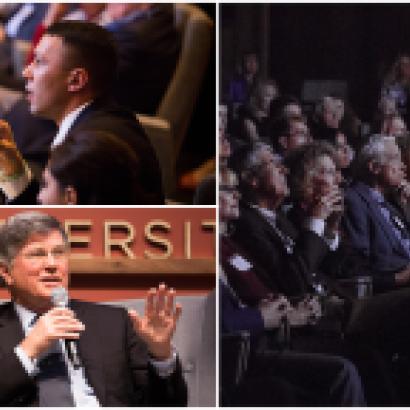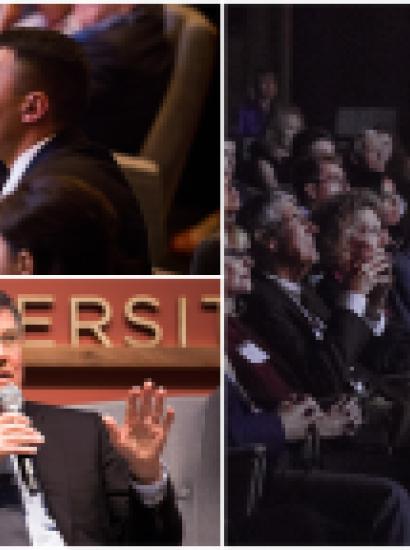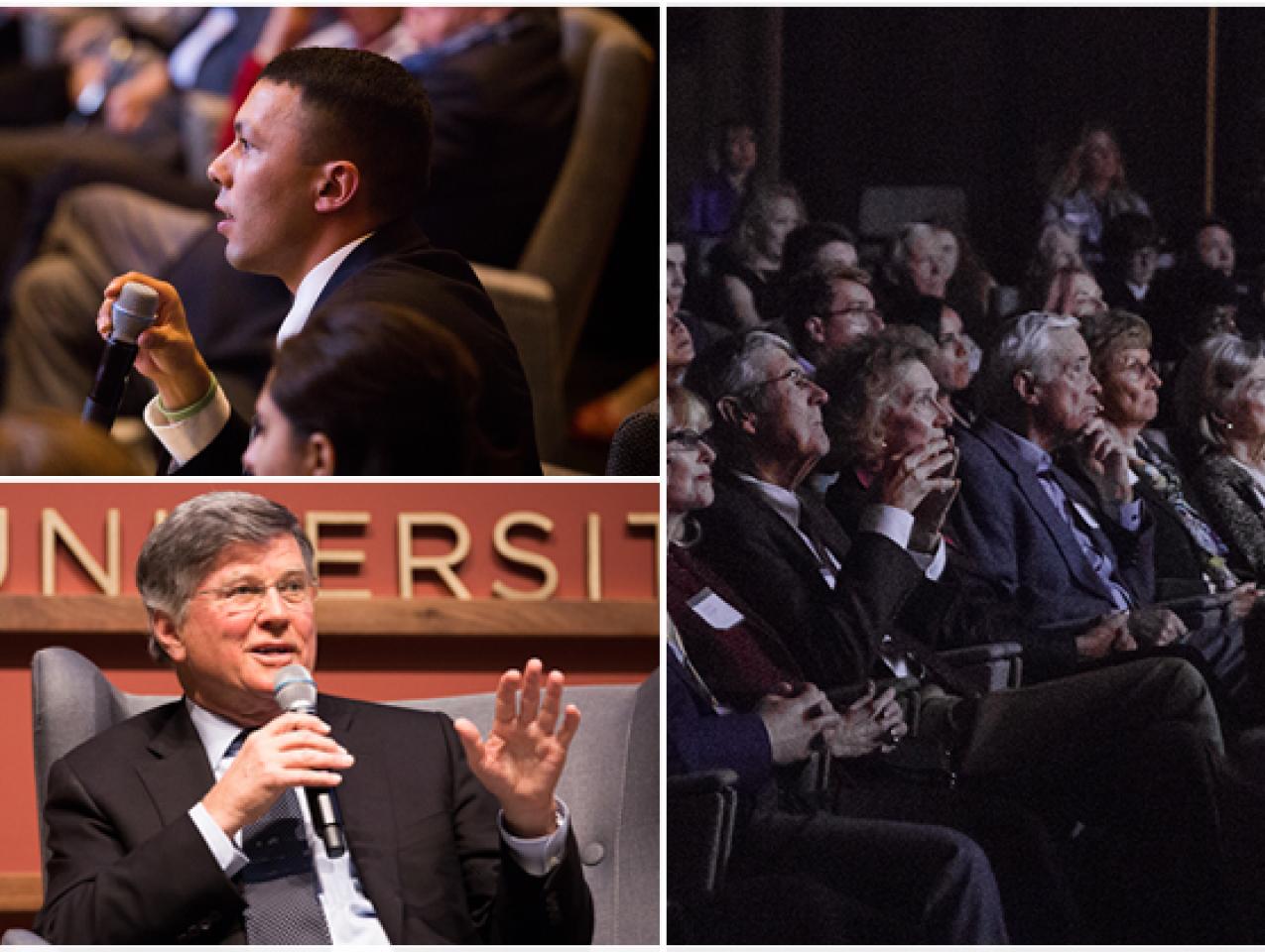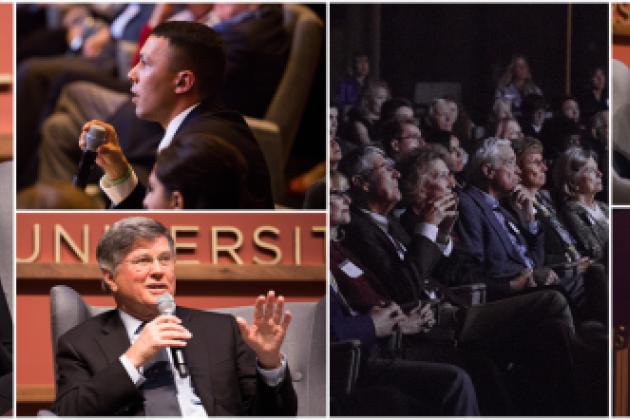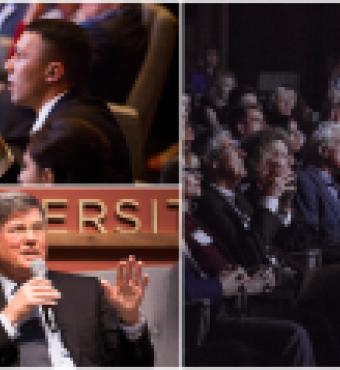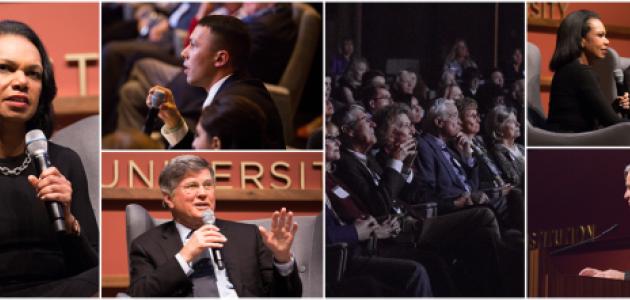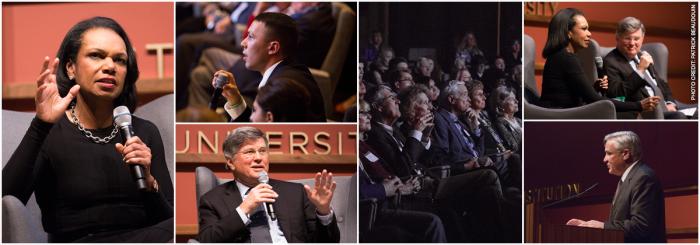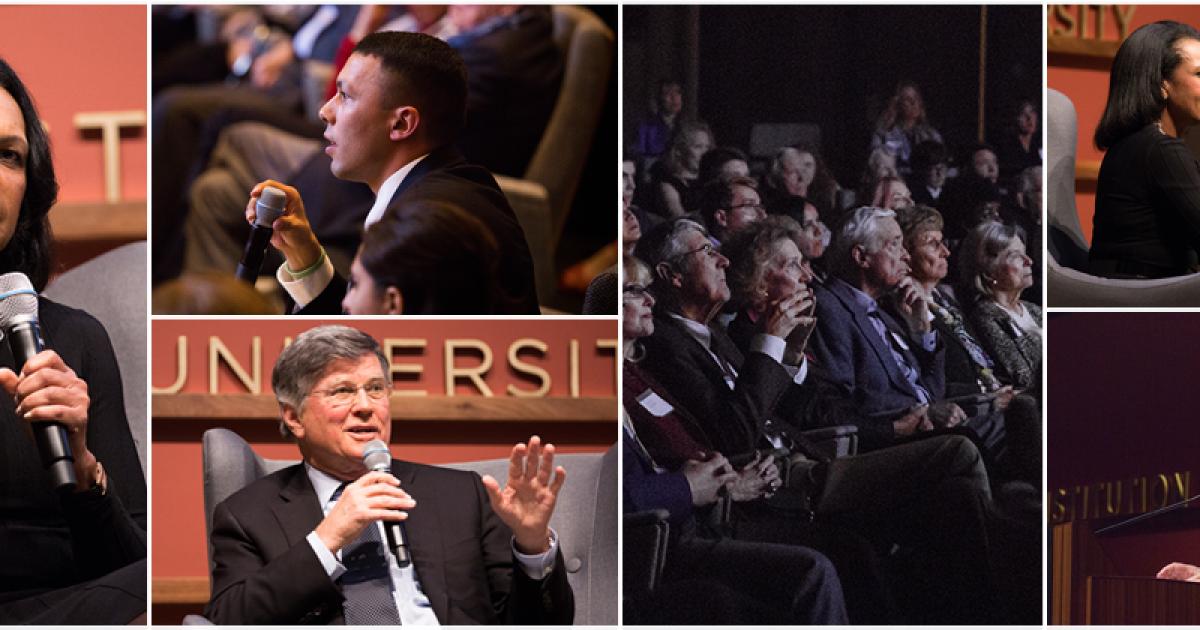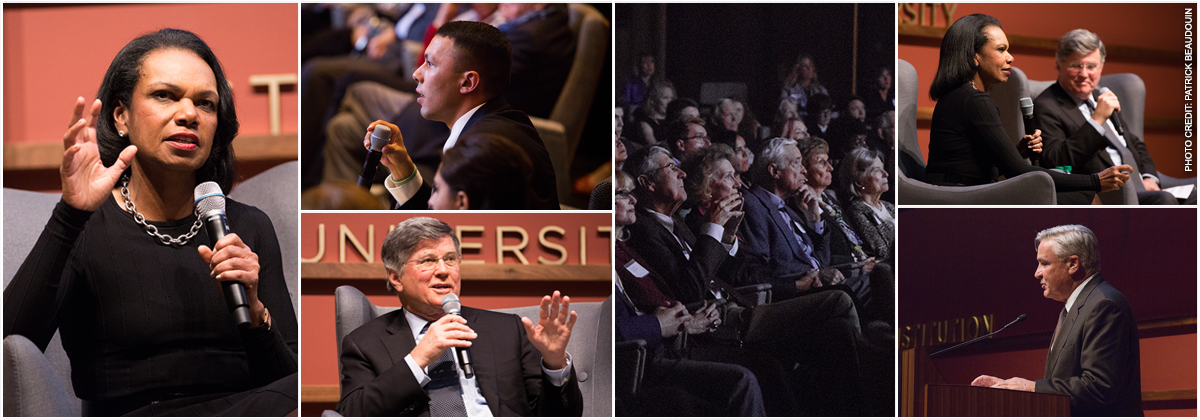
What is our national character as Americans—and has it been lost?
That question begs a larger story and dialogue that will be unveiled next week when PBS shows a new documentary, American Creed, which originated with two Stanford scholars.
The project was inspired by Hoover Institution senior fellow, and former secretary of state, Condoleezza Rice and historian David Kennedy of the Freeman Spogli Institution. Both served as hosts for the documentary. On February 15th, they joined more than 200 students, faculty, and staff for a special Stanford showing of the film at Hauck Auditorium.
In the Bay Area, American Creed can be viewed at 9 p.m. on February 27th on KQED.
The idea behind American Creed is to determine whether the United States has a “national character”— what defines it and how it changes over time. For example, what does it mean to be a citizen, how do economic booms and busts shape our national character, and what happens to our creed when social mobility declines along with trust in American institutions?
“It starts with us as Americans,” Rice says as the film opens. Soon she and Kennedy are shown leading a Stanford class of students discussing hopes, realities, and how they and their families seek dreams amid obstacles.
Kennedy said he and Rice shared a “sense of the fragility” of the American creed as a “prize.” Rice said America is a country where “political opposites can bridge divides” and bond together to a common sense of what Americans are trying to achieve. “But,” she added, “I think we’ve lost sight of it.”
In order to regain America’s creed, the film emphasized what Rice calls “America’s aspirational narrative—the striving to do and be better that has always drawn people to this country," and what Kennedy, the first from his family to earn a college degree, calls “the pull of America.”
“The gap between the promise and reality” of the American dream underlies the challenge of this country, Kennedy said.
Rice said these gaps always existed, and the true fight is to get “closer to the ideal” expressed in America. “Everyone at some point has to come to terms with their home and how it shaped them,” said Rice, who grew up in segregated Birmingham, Alabama, the granddaughter of an energetic local Presbyterian minister. For her, education was a “kind of armor against prejudice and barriers to opportunity.”
And she added, “Faith matters, family matters, and community matters,” noting how her grandfather built not only churches but schools throughout the region in a way that brought people together.
Both Rice and Kennedy noted that once people realize that they have more in common than differences, the American creed is shared and realized. Rice spoke of understanding our “collective enterprise” while acknowledging people are different, and Kennedy talked about understanding that “we’re all in this together.”
After the Stanford showing of the eighty-minute documentary, Rice and Kennedy took part in a question-and-answer session with students, staff, and faculty.
The documentary is shaped around people across America striving to bring communities together during times of change. For example, Chicago Cubs baseball manager Joe Maddon got involved with residents of his hometown of Hazleton, Pennsylvania after a new federal immigration rule threatened to divide the town.
“The moment we trust each other, then we can build something,” said Maddon, a World Series-winning manager, describing how his hometown and his family’s own immigration history from Europe many decades ago is similar to today’s immigration situation.
Then there’s Oklahoma elementary school principal Deidre Prevett, a Native American who helps children from low-income families of many different backgrounds.
“While we are a melting pot, we can’t forget where we came from, and we need to learn about each other’s history,” Prevett said.
Other subjects in American Creed include Iraq and Afghanistan war veteran Tegan Griffith and novelist Junot Díaz, who work in very different ways to restore and heal troubled lives; and Seattle educator Eric Liu, who works to reaffirm the ideals of American democracy.
In his remarks, director and producer Sam Ball said, “This is the first large audience setting we’re doing for our Bay Area community” that made the film possible in so many ways.
“It’s really just the beginning of a national dialogue on creed and the American character,” he said, noting that additional public television programming will be created around the new documentary.
Senior executive producer Randy Bean added, “We made it; it’s been a long and wonderful journey.”







